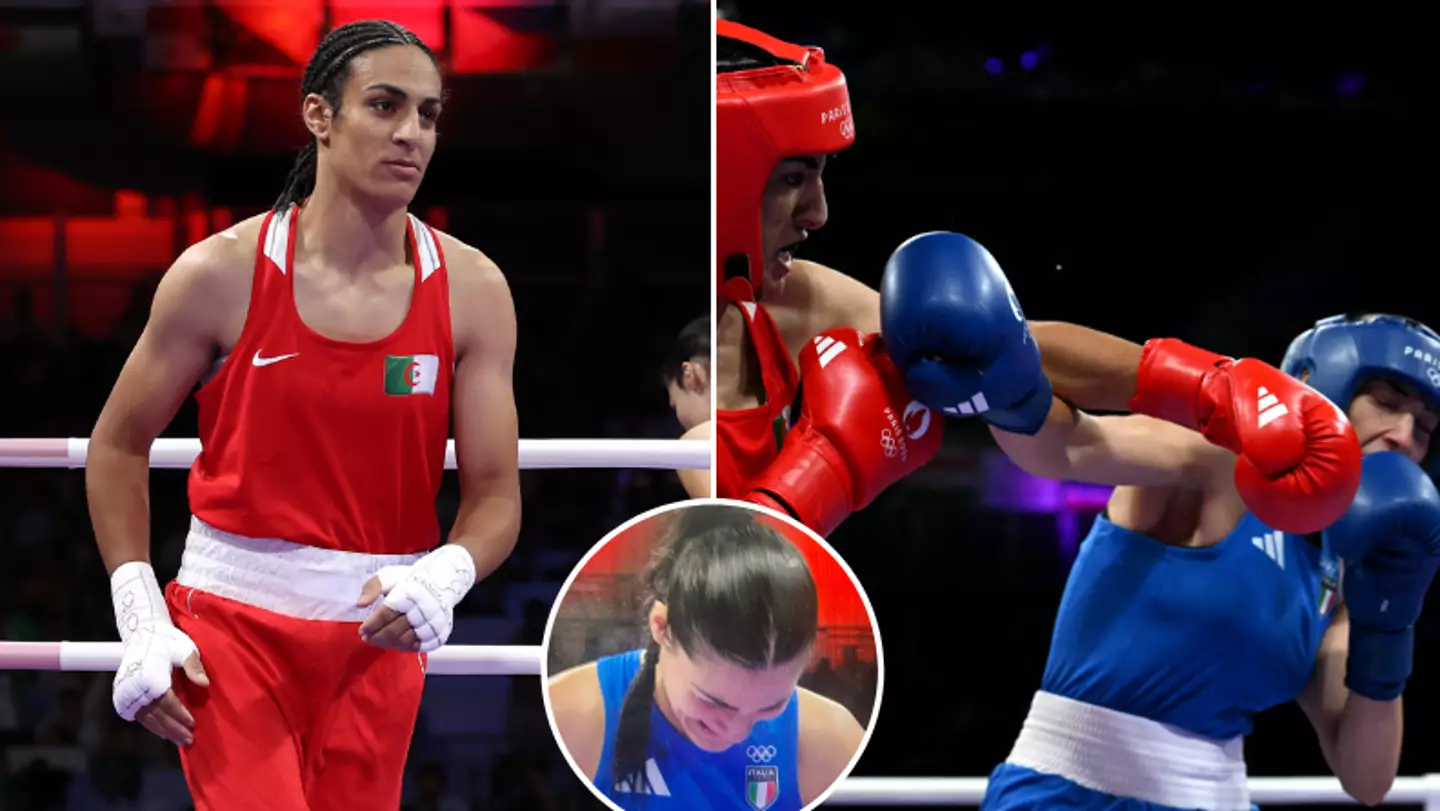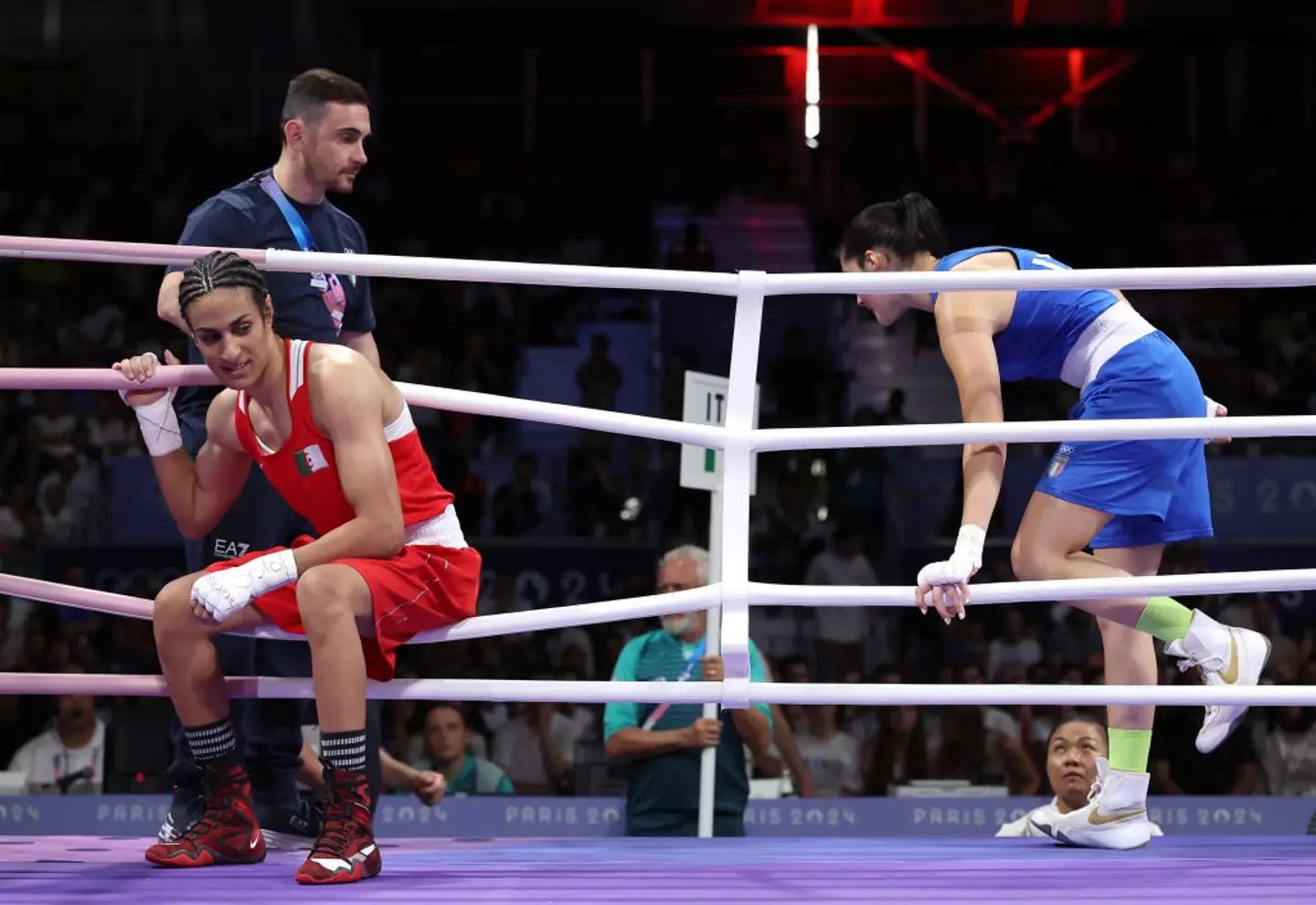
The reason why Imane Khelif is able to compete in Olympics boxing despite failing previous gender eligibility test
Angela Carini abandoned her fight with Imane Khelif just 46 seconds into the opening round.
There has been major controversy in the Olympic boxing after Italy’s Angela Carini withdrew from her fight against Imane Khelif, amid an ongoing row over the Algerian’s eligibility to compete.
Carini withdrew just 46 seconds into the first round of their welterweight contest at the North Paris Arena on Thursday.
Carini decided that she could no longer continue after being rocked by two punches from Khelif in the opening exchanges of their bout.
Algerian fighter Khelif is one of two boxers – along with Taiwan’s double world champion Lin Yu-ting – at the centre of a major controversy at the Olympics, with the pair disqualified from last year’s World Championships for failing gender eligibility tests.
Khelif was disqualified hours before her gold medal bout at the Championships in New Delhi after she failed to meet the International Boxing Association’s (IBA) eligibility criteria, with the BBC reporting that she failed a testosterone level test.
While the IBA said in a statement that the pair had been disqualified “to uphold the level of fairness and utmost integrity of the competition”, the body also claimed that they “did not undergo a testosterone examination but were subject to a separate and recognised test, whereby the specifics remain confidential”.
“This test conclusively indicated that both athletes did not meet the required necessary eligibility criteria and were found to have competitive advantages over other female competitors,” the body added.
IBA president Umar Kremlev also told Russian news agency TASS at the time that both Khelif and Lin had “XY chromosomes”, according to a report from Reuters.
Despite those claims, Khelif and Lin were both cleared to compete at the 2024 Games in Paris.
The reason why the pair have been allowed to take part in the Olympics is because boxing is administered by a different body at the Games to the World Championships.
As previously stated, last year’s competition in India was organised by the IBA.
The Russian-led organisation has long faced questions about its governance and in June of last year was stripped of its status as the sport’s world governing body by the International Olympic Committee (IOC).
The boxing competition at the 2024 Olympics is instead being overseen by another body, the Paris Boxing Unit (PBU), which approved both Khelif and Lin to take part in the Games.
“All athletes participating in the boxing tournament of the Olympic Games Paris 2024 comply with the competition’s eligibility and entry regulations, as well as all applicable medical regulations in accordance with rules 1.4 and 3.1 of the Paris 2024 Boxing Unit,” the IOC said in a statement, explaining the decision to clear Khelif and Lin to fight.
“The PBU endeavoured to restrict amendments to minimise the impact on athletes’ preparation and guaranteeing consistency between Olympic Games.”

Angela Carini withdrew from her fight against Imane Khelif (Image: Getty)
On Wednesday, Algeria’s Olympic Committee (COA) issued a public statement condemning “baseless” attacks on Khelif after questions were raised over her participation at the Olympics.
The statement read: “COA strongly condemns the unethical targeting and maligning of our esteemed athlete, Imane Khelif, with baseless propaganda from certain foreign media outlets.
“Such attacks on her personality and dignity are deeply unfair, especially as she prepares for the pinnacle of her career at the Olympics.
“The COA has taken all necessary measures to protect our champion.”
Both Khelif and Lin previously competed at the delayed Olympic Games in Tokyo in 2021. Khelif lost to Ireland’s Kellie Harrington in their quarter-final fight, while Lin also failed to win a medal.
“These athletes have competed many times before for many years, they haven’t just suddenly arrived – they competed in Tokyo,” added IOC spokesperson Mark Adams.